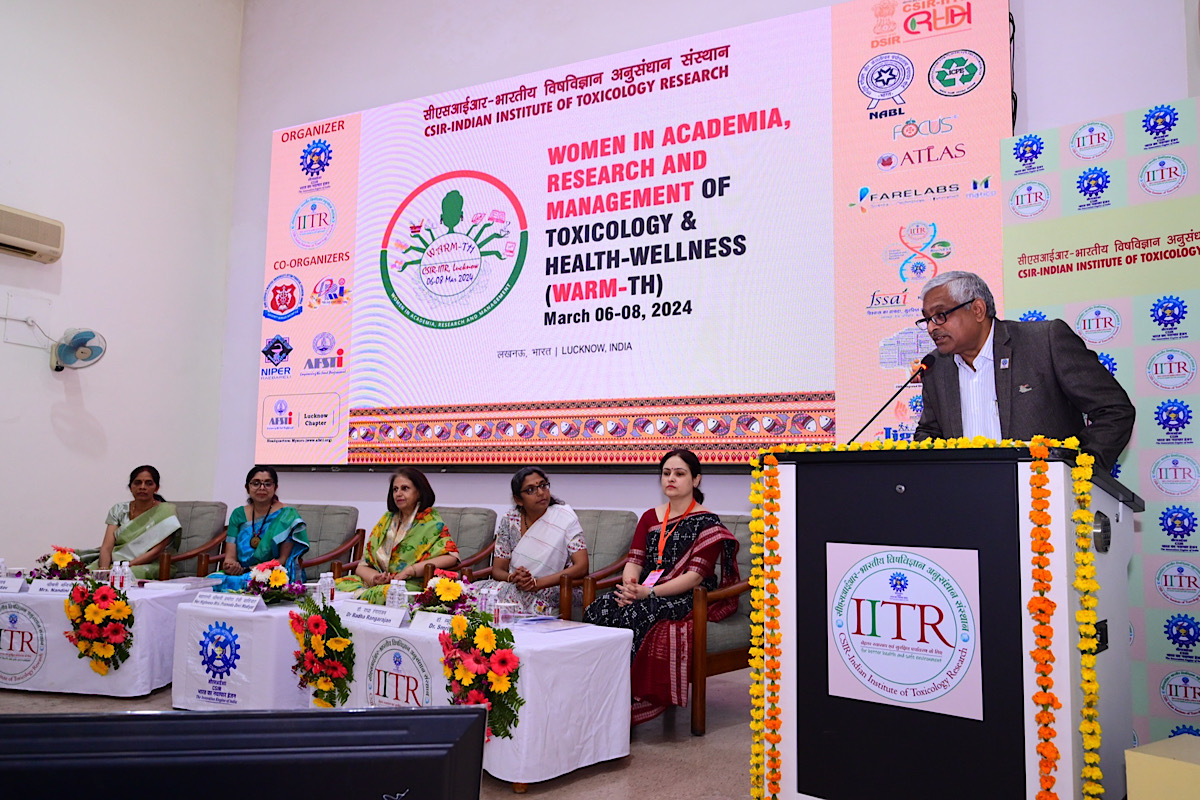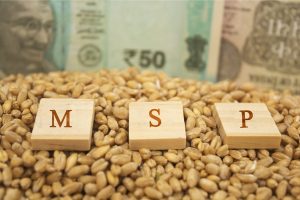Themed on a gender-equal world, free of bias, stereotypes, and discrimination while also being equitable, and inclusive is everyone’s dream, a three-day conference on ‘Women in Academia, Research and Management of Toxicology and Health-Wellness (WARM-TH 2024)’ was inaugurated at CSIR–IITR here on Wednesday.
The conference is being organized in collaboration with CSIR–Central Drug Research Institute (CSIR–CDRI), King George Medical University (KGMU), National Institute of Pharmaceutical Education and Research (NIPER) Raebareli and Association of Food Scientists and Technologists of India (AFSTI) Lucknow Chapter.
Advertisement
The inaugural programme was graced by the presence of Pramoda Devi Wadyar, Maharani of Mysore, as the Chief Guest of the day.
In her inaugural address, she congratulated CSIR – IITR on conceptualising such a conference and said that the theme areas chosen, i.e., health and wellness; gender-specific health management; opportunities and success stories are indeed very apt in the present times.
She also opined that the inherent resilience in women makes them empowered by birth allowing them to make ground breaking discoveries in all their endeavours.
Recipient of the Nari Shakti Award given by the Ministry of Women and Child Development and the Guest of Honour, Krishna Yadav shared her thoughts on being a successful self-made entrepreneur. Coming from a very humble background fraught with struggles, Shri Krishna Pickles, her entrepreneurial venture, now employs nearly 200 individuals, she said.
Nandini Harinath, Deputy Director, ISTRAC-ISRO, Bengaluru and Guest of Honour, also addressed the gathering and released the curtain raiser of the International Hindi Conference to be organized by CSIR–IITR soon.
Sharing facts on the role of women in different ISRO Missions, she said that ISRO’s women scientists have been critical decision makers in both Mangalyaan and Chandrayaan Missions.
Presiding over the function, Dr Radha Rangarajan, Director, CSIR-CDRI opined that while there are several success stories today of women scientists, entrepreneurs, and academicians as compared to a few decades ago, a lot still needs to be done to make the STEM ecosystem truly inclusive for women.
Citing the healthy gender equality of nearly 50 percent among the scientific workforce in the Scandinavian countries, Dr Radha said that mentoring first-time working women from traditional upbringing will go a long way in empowering them to turn into successful achievers.
The Day 1 of the conference was marked by keynote addresses from leading healthcare practitioners and the Academia Government Industry Leadership (AGILE) Conclave that highlighted the role of efficient government-academia-industry collaboration in ensuring successful technology development and deployment.
















